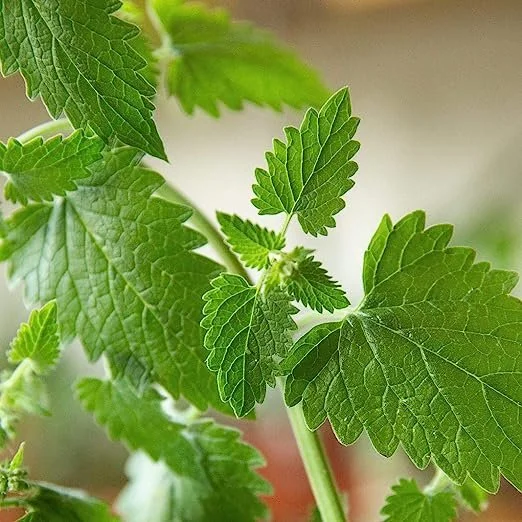Catnip
Natural Treatment for Relaxation and Digestive Health
Catnip, also known as Nepeta cataria, is a perennial herb native to Europe and Asia, but can now be found worldwide. The plant is part of the mint family and has been used for medicinal purposes for centuries. Here's a guide to using Catnip as a natural remedy and herbal:
What is Catnip?
Catnip is a flowering plant that grows up to 3 feet tall. The leaves of the plant are heart-shaped and gray-green in color, while the flowers are white to light pink in color. The plant's leaves and flowers are used for medicinal purposes. In addition to its medicinal properties, catnip is also a popular herb for cats.
Health Benefits of Catnip
Catnip has been used for centuries to treat various ailments, including:
Anxiety and Stress
Catnip has calming properties that can help reduce anxiety and stress.
Insomnia
Catnip can help promote relaxation and sleep.
Digestive Issues
Catnip can help relieve nausea, bloating, and stomach cramps.
Menstrual Cramps
Catnip can help relieve menstrual cramps.
How to Use Catnip
Catnip is available in various forms, including teas, tinctures, and capsules. It's important to follow the manufacturer's instructions and consult with a healthcare provider before using catnip. Here are some general guidelines for using catnip:
Tea
Add 1-2 teaspoons of dried catnip leaves to a cup of boiling water. Let it steep for 10-15 minutes and drink it up to three times per day.
Tincture
Take 30-60 drops of catnip tincture in a small amount of water, up to three times per day.
Capsules
Take as directed by the manufacturer.
Historical Uses of Catnip
Catnip has a long history of use in traditional medicine. It was used by the ancient Greeks to treat digestive issues, while the Romans used it as a sedative. Native Americans used it to treat colic in infants, as well as colds and fevers.
Scientific Studies on Catnip
While more research is needed, some studies have shown promising results for the health benefits of catnip. One study found that catnip had mild sedative effects and could help alleviate anxiety in humans. Another study found that the essential oil of catnip had antimicrobial properties against several types of bacteria.
Growing and Foraging Catnip
Catnip is relatively easy to grow and can be grown from seeds or cuttings. It prefers well-drained soil and full sun but can also tolerate partial shade.
To forage catnip, look for the plant growing in fields, along roadsides, and waste areas. The leaves can be harvested in the summer when they are at their peak.
Safety Precautions
Catnip is generally safe when taken in recommended doses. However, it may cause side effects such as:
Dizziness
Headache
Nausea
Allergic reactions
It's important to consult with a healthcare provider before using catnip, especially if you are pregnant, breastfeeding, or have a history of liver or kidney disease.
Conclusion
Catnip is a natural remedy and herbal medicine that has been used for centuries to treat various ailments. It's important to follow the manufacturer's instructions and consult with a healthcare provider before using catnip. With proper use, catnip can be a safe and effective way to reduce anxiety and stress, promote relaxation and sleep, relieve digestive issues, and alleviate menstrual cramps.
Ready to learn more?
Check out the herbal academy to become a herbal expert!
Are you ready to get growing? Grab the Medicinal Garden Kit here to get started!




